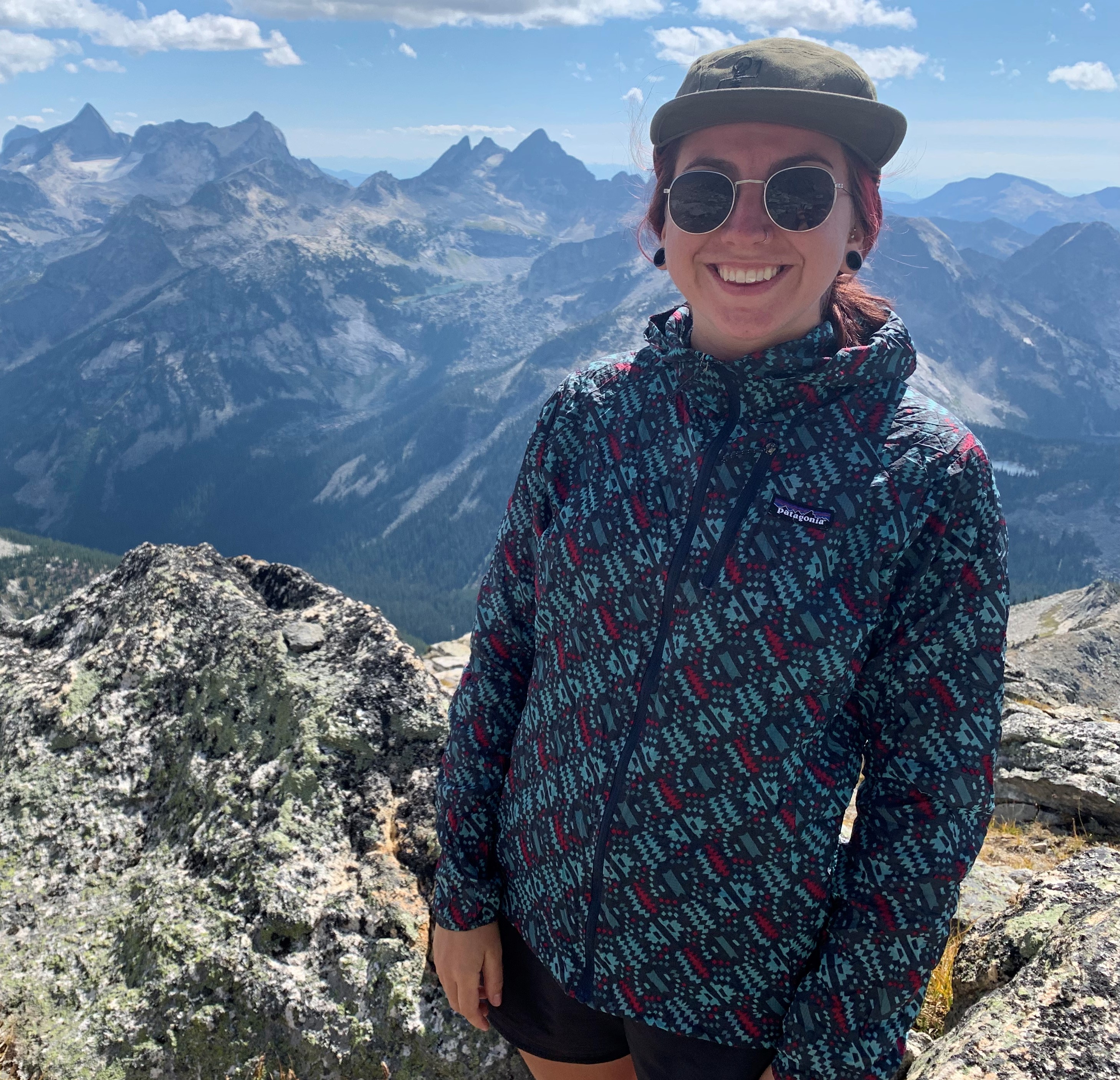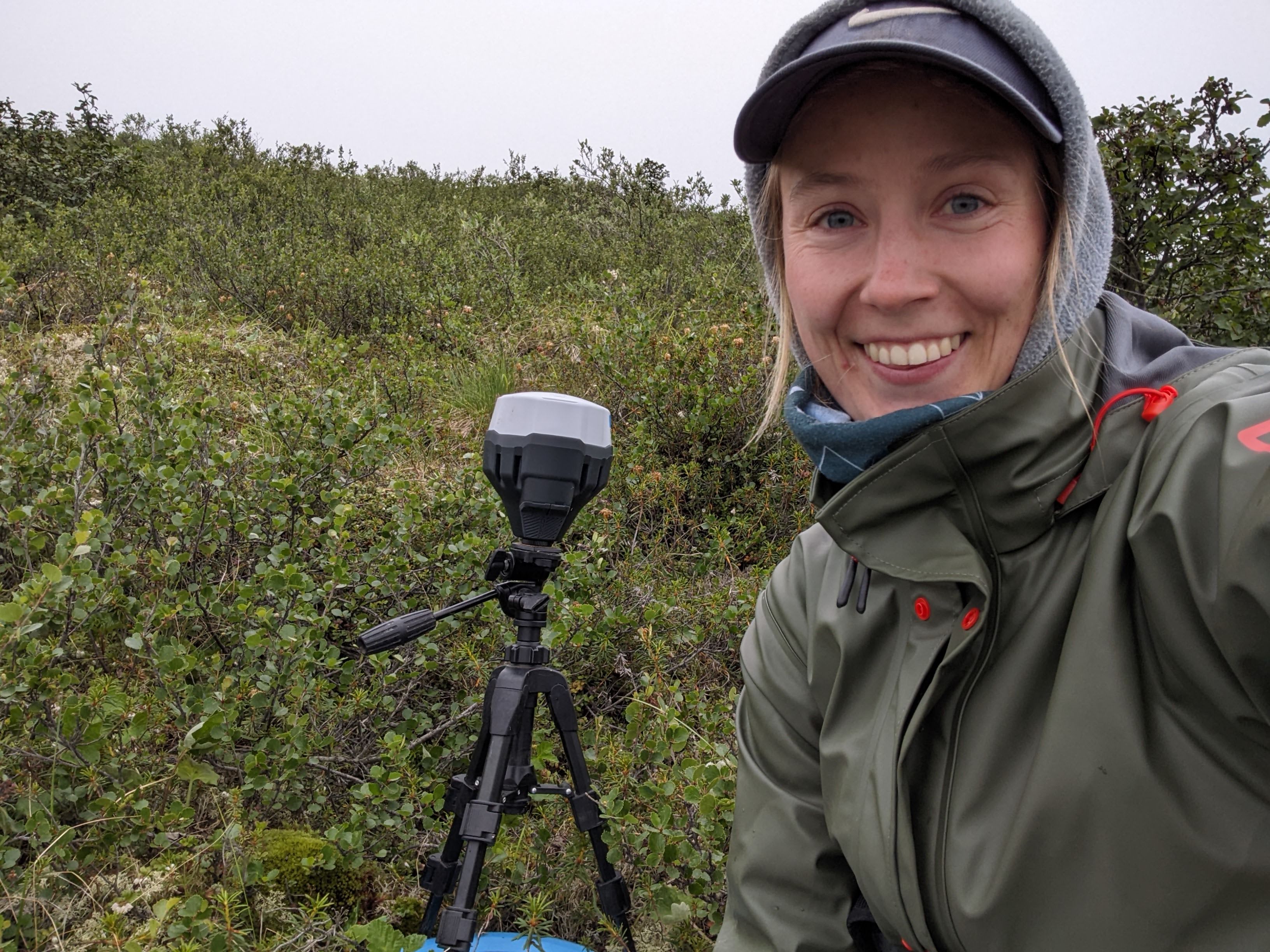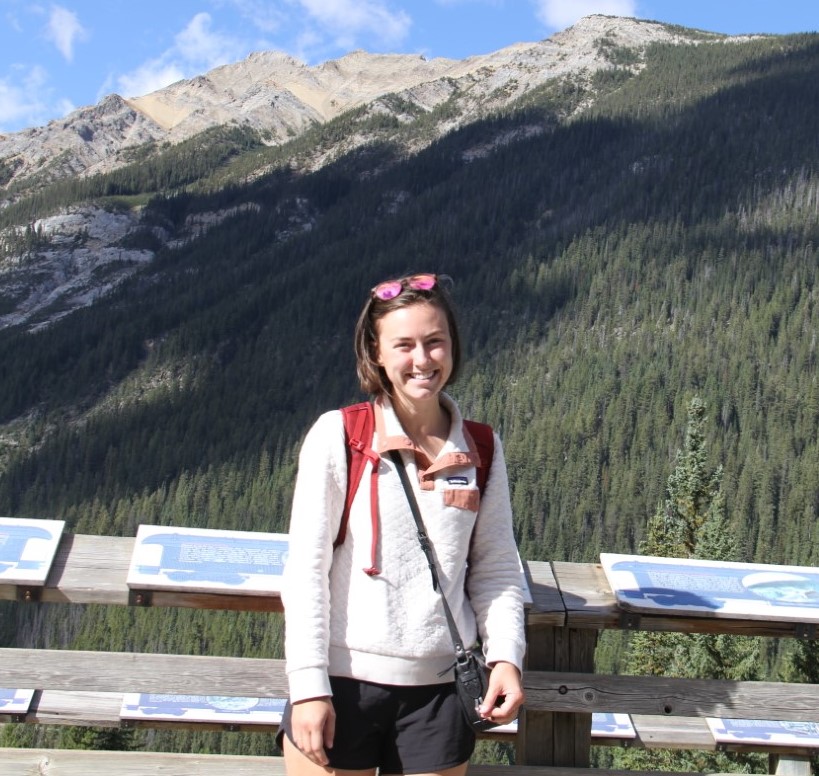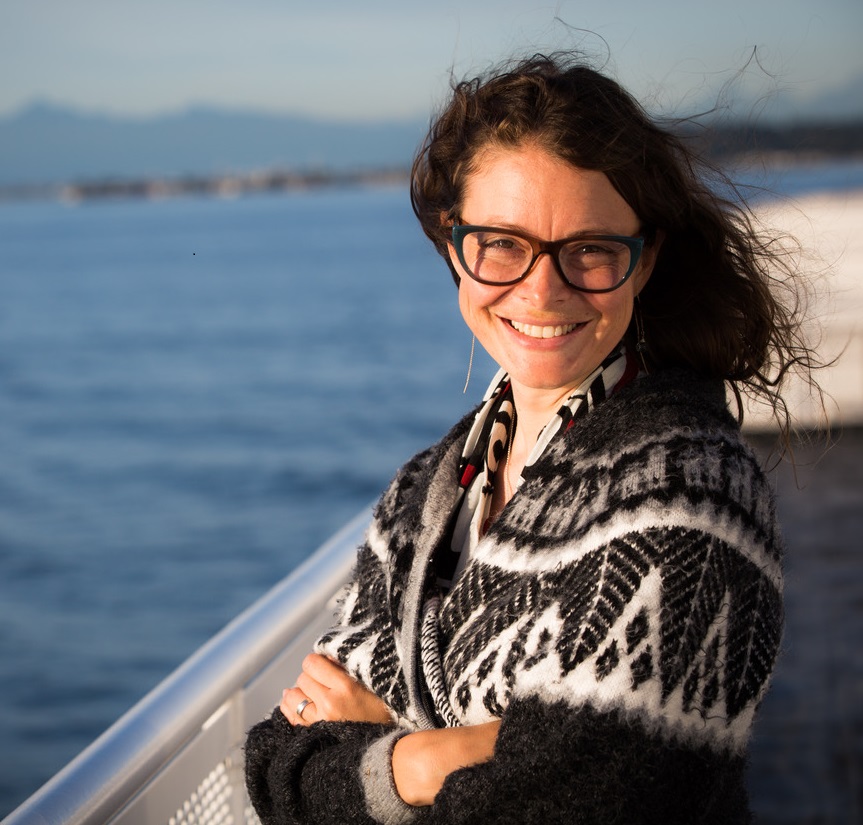

Kate Curtis (she/her), Masters Student
Kate is a Masters student focusing on Inuvialuit and Gwich'in Indigenous and traditional knowledge of muskox. She grew up as a settler on the traditional territory of the Syilx Okanagan Peoples, where she first fell in love with her natural environment. She received her Bachelor of Arts in Linguistics from UBC, where she focused on language documentation and revitalization, as well as social influences on dialects and speech. Kate has since grown a passion for the ways in which ecology and language intersect, and how that connection can support both language revitalization and natural resource conservation. She has been working for Environment and Climate Change Canada since August 2020, where she is supporting the inclusion of Indigenous language and knowledge into the southern mountain caribou recovery strategy amendment. She has also worked on several projects supporting Indigenous nations in BC in their language revitalization efforts; specifically creating resources aimed at connecting Indigneous youth to the land through their language. Kate feels incredibly grateful to be able to combine her passions for language and the environment in her graduate studies. Outside of work, Kate can often be found running, cross country skiing, or generally being pulled up a mountain by her dog, Zoe.
Kaitlyn Diederichs (they/she), Masters Student
Kaitlyn Diederichs is a University of Victoria M.Sc. student primarily researching landscape sensitivity to permafrost thaw and the resulting geotechnical hazards. Her other research interests include the interactions of ecosystems, people, and geology, in particular in Canadian and Arctic contexts; instrumentation and remote sensing as tools to improve hazard management outcomes and climate adaptability for more resilient transportation corridors; and equity, diversity, and inclusivity particularly in relation to field safety. Kaitlyn holds a B.A.Sc. in Systems Design Engineering from the University of Waterloo and can often be found canoeing or hiking near the lakes of Ontario.


Meghan Hamp (she/her), PhD student
Meghan Hamp is a first-year PhD student in the Department of Environmental Studies, working with Dr. Trevor Lantz. Her research focuses on understanding the impacts of climate-related and anthropogenic disturbances on plant community composition and carbon storage across the across the Inuvialuit, and Gwich’in Settlement regions. The combined effects of climate warming and more frequent disturbances such as storm surges, tundra fires, and thaw slumps, as well as the increased the pressure of anthropogenic excavation activities are causing rapid shifts in tundra vegetation and soils. These ongoing changes are likely to have significant implications for a variety of ecological processes, including altered carbon cycling, impacted plant community composition, and altered ecosystem structure and functioning. Meghan’s goal for her PhD is to identify the determinants of tundra plant community and soil carb recovery and to develop a predictive framework that can inform decision making and ecological modelling.
Meghan is from Saskatoon, Saskatchewan and completed her undergraduate degree at the University of Saskatchewan. Her love of the tundra ecosystem began during her undergraduate degree when she had the opportunity to assist with fieldwork looking at seedling growth after wildfire in the Canadian and Alaskan boreal and tundra ecosystems. Meghan’s goal is to prioritize community concerns in the outcomes of her research to facilitate meaningful relationships and draw focus to research that is beneficial to communities who are directly impacted by climate change and climate-exacerbated disturbances in these areas. When she’s not studying, Meghan is outside climbing mountains and identifying plants with her dog, Willow.
Trevor Lantz (he/him), Professor
Trevor Lantz is a terrestrial ecologist who works at a variety of scales to understand environmental change in northern ecosystems. He and his students combine detailed field investigations, broad-scale change detection, spatial pattern analysis, and investigations focused on the traditional knowledge of local land users. By combining field investigations, regional mapping, and traditional knowledge, his research program seeks to link knowledge of key processes with data on landscape-level variation in critical drivers, and constraints. Current research projects in the western Arctic focus on permafrost degradation, storm surges, shrub encroachment, catastrophic lake drainage, anthropogenic disturbance, and community-based environmental monitoring.


Logan McLeod (he/him), PhD Student
Logan is researching the ecological consequences of Arctic landscape change and permafrost thaw, focusing on their impacts to wildlife habitat. He will combine fieldwork, remote sensing, and spatial analysis to study how species respond to the changes Northern landscapes are experiencing. One aspect will investigate the habitat use and movement ecology of a moose population in Northern Yukon while another will investigate how ecological changes related to permafrost thaw influence the composition and dynamics of terrestrial bird communities. Logan spent several years working for CWS as a Landbird Biologist and has a BSc and MSc in Ecology from the University of Alberta.
Sasha Plotnikoff (they/them), Research Assistant
Sasha is a Research Assistant who contributes to mapping permafrost thaw slumps and tundra fires, transcribing interviews with Inuvialuit and Gwich’in community members, and various other research projects within the ALE. Sasha holds a BSc from the University of Victoria, specializing in Forest Biology with a minor in Environmental Studies. Raised in the West Kootenays, they cultivated a deep appreciation for forest ecosystems through camping out in the bush during summer and scoping out potential Christmas trees in the winter. Year-round, they can often be seen capturing the beauty of nature through their mom’s old film camera or identifying as many local plant species as they can.


Niek Speetjens (he/him), Postdoctoral Researcher
Niek Jesse joined ALE in 2023 as a postdoctoral fellow at the University of Victoria under the supervision of Dr. Trevor Lantz and Dr. Stephan Gruber (Carleton University). The goal of his project is to develop a permafrost terrain type classification framework. The framework will be used to support and allow for harmonization of the work of various scientific disciplines associated with permafrost research as well as stakeholders outside of academia. The ultimate objective is to facilitate a more holistic approach toward mapping permafrost and understanding how permafrost landscapes respond to environmental changes and their consequential impacts.
Niek Jesse’s research has focused on catchment hydrology in relation to permafrost processes and understanding the effect of permafrost thaw on fluvial fluxes of organic carbon. Niek Jesse did his PhD research at the Vrije Universiteit Amsterdam (VUA), the Netherlands, and used a combination of extensive field sampling campaigns with incubation experiments, geospatial analysis, and hydrological modelling to gain a better understanding of land-ocean fluxes of permafrost organic matter.
Emma Street (she/her), PhD Student
Emma Street is a PhD student whose research explores traditional knowledge of permafrost in the Gwich’in and Inuvialuit Settlement Regions. Emma seeks to better understand thawing permafrost and the implications of the thaw in this region and contribute to observer-driver permafrost monitoring programs. Emma has a (Hons.) Bachelor of Social Science from the University of Ottawa in Anthropology and Environmental Studies and a Master of Environmental Studies from York University (Toronto) where her research focused on the social, cultural, and economic consequences of thawing permafrost in Churchill, Manitoba. Between degrees, Emma worked in federal politics and as an outdoor educator and high school English teacher. Outside of the lab, Emma can be found covered in craft supplies, flour, or dirt.


Hayley Webster (she/her), Masters Student
Hayley Webster is an MSc student whose research explores climate-driven vegetation change across the Yukon North Slope. Hayley completed her BSc in Environmental and Conservation Sciences, with a major in Land Reclamation, at the University of Alberta. Hayley loves to spend time outdoors, especially hiking and identifying the different plants she encounters along the trail. Hayley’s curiosity of different plants, and their broader ecosystem relationships, led her to pursue studies in the field of environmental sciences.
Jackie Ziegler (she/her), Postdoctoral Researcher
Jackie grew up in Toronto dreaming of the ocean. She is a lover of sharks, rays, whales and anything aquatic. She has an interdisciplinary background in marine and freshwater biology and geography with a focus on the human dimensions of natural resource use, management, and conservation. As an applied environmental social scientist, Jackie is particularly interested in how social science methods and approaches can be used to improve the management and stewardship of aquatic resources. She’s done work in Brazil, Madagascar, Mexico, Peru, the Philippines, and Thailand, mainly focused on improving the sustainability and conservation outcomes of marine wildlife tourism. As a postdoctoral researcher, she is looking forward to working in partnership with the Gwich’in Renewable Resources Board to understand the impacts of environmental change on fishing livelihoods in the Gwich’in Settlement Area in the Canadian western Arctic.